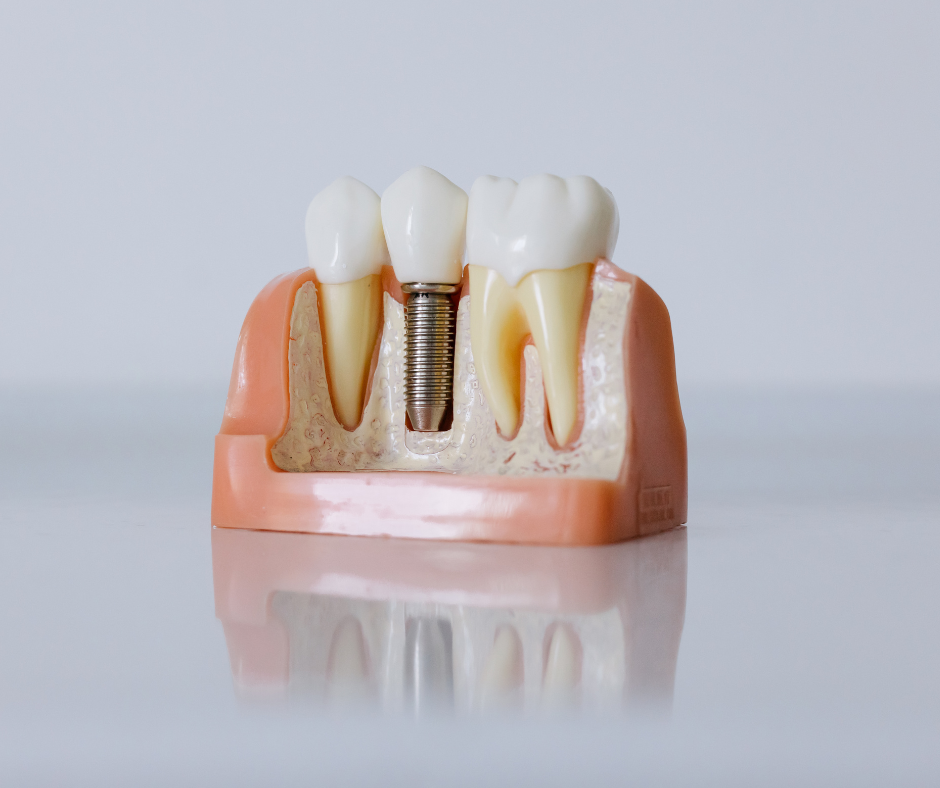Blog
Dental caries (cavities) are one of the most common chronic diseases affecting children. It occurs when foods containing carbohydrates (sugars and starches) turn into acids that eat away at the dental enamel. Dental caries is five times more common than asthma and seven times more common than hay fever.
What are Childhood Dental Caries in South Edmonton, AB?
The Centers for Disease Control and Prevention estimate that nearly one quarter of children ages 2-11 have at least one untreated decayed tooth. According to the CDC, this can lead to a variety of problems for the child including pain while eating or speaking and possible tooth loss. Cavities are caused by sugar in a child’s diet. If left untreated, tooth decay can affect the child’s ability to eat, sleep and speak normally. The sooner a child is treated for a cavity, the better for their overall health.
A children’s dentist can treat cavities by removing the decay and placing a filling over the damaged area. Fillings can be made from a variety of materials, such as gold, porcelain, composite resin and more. The material chosen will depend on a number of factors including the size, location and type of restoration needed. For larger fillings, the dentist may recommend a metal-based amalgam since the material is more durable than composite resin. However, composite resin is ideal for smaller restorations since it is more discreet and requires less drilling to prep the tooth for placement. Composite resin is also more affordable compared to gold and other metals. Your dentist can help you decide on the best material for your child’s individual needs.
While helpful for treating cavities in children, it’s important to remember that fillings will not prevent future decay. In order to stop tooth decay from happening again, your dentist will educate you and your child on proper oral hygiene habits including proper brushing and flossing techniques as well as the importance of a healthy diet. Regular appointments with a dentist will help keep your child’s mouth healthy for years to come. To schedule their next appointment with a family dentist, visit today!
Causes of Childhood Dental Caries in Edmonton, AB
The causes of cavities in children are essentially the same as those in adults. The primary cause of tooth decay in children is frequent exposure to sugar, especially from candy and soda. When children eat these foods frequently over a long period of time, it creates an ideal environment for bacteria to grow, which leads to serious decay problems.
For babies, the most common cause of cavities is nursing or feeding habits. If a baby is put to bed with a bottle of milk or juice, this creates a perfect breeding ground for bacteria growth in their mouth. This can turn into a serious condition known as bottle mouth, which is when a child’s teeth have severe decay issues because of being constantly exposed to sugary substances in their bottle.
Another common cause for children is getting their teeth cleaned too often. Although it is important to have your child’s teeth thoroughly cleaned and examined by a dentist every six months, too much cleaning can actually cause more harm than good. Because a child’s mouth is still developing, too much brushing can remove enamel and cause sensitivity issues. Instead, you should focus on preventing plaque buildup in the first place rather than trying to remove it after it happens.
Preventive care like fluoride treatments and sealants can protect your child’s teeth and reduce the chances of them getting cavities. However, some children are more prone to cavities than others, so it is important to watch them carefully for any signs of tooth decay. If you notice that your child has brown or white spots on their teeth, it may be a sign that they are suffering from early forms of tooth decay. At this point, call your dentist right away so they can come examine the issue further.
If you suspect that you have a cavity, the first thing that you should do is schedule an appointment with your South Edmonton, AB dentist for a consultation appointment. They will be able to examine you and check to see if you need any further treatment. If you do have a cavity, they will talk to you about your options.
Treatment & Prevention Options
This condition develops when bacteria in the mouth break down sugary foods, forming a sticky, acidic film on the teeth. The acids slowly wear away tooth enamel, forming pits or cavities over time. These “white spots” often indicate the beginning of active tooth decay. Early diagnosis and treatment can reduce the amount of decay and prevent worse problems from developing, such as gum disease and tooth loss.
To treat early caries in children’s teeth, we may recommend fluoride treatments, preventive sealants, and diet changes. We may also monitor the teeth for any signs of further decay until the child’s next checkup. In cases of severe damage, we may refer the patient to a pediatric dentist for more involved treatment.
As the adult teeth emerge during childhood, children are often more prone to cavities than adults are. However, there are a few things parents can do to help minimize the risk. One of the most important is to maintain good oral hygiene at home. Brushing twice a day and flossing each day helps remove plaque from the teeth and dilutes the acids that can damage them. Fluoride can also strengthen the teeth against acid attacks.
In addition, parents should limit sugary foods and drinks in their children’s diets. These include soda, candy, cake, cookies, and other starchy or carbohydrate-rich items that feed the bacteria that cause cavities.
Many children need general dental care as soon as their first baby teeth erupt, usually around age six months. If a child does not yet have his or her first tooth, we will assess the future risk for cavities at his or her next appointment. Here at Legacy Dental Clinic we offer 'Happy Visits' to our little patients, so they can see the dental environment from a young age and feel comfortable in the setting!
For more tips on promoting healthy eating habits and preventing tooth decay, visit our website or feel free to give Legacy Dental Clinic a call with any questions you have!
Contact Legacy Dental Clinic, our Best Dental Clinic in South Edmonton, AB, today to schedule your consultation with Dr. Jennifer Nguyen! Call our Edmonton, AB dental clinic at (825) 467-8888.
Location
4224 Gateway Blvd NW,
Edmonton, AB , Canada T6J 7K1
Office Hours
MON10:00 am - 6:00 pm
TUE8:00 am - 6:00 pm
WED - FRI8:00 am - 4:30 pm
SAT8:00 am - 3:00 pm
SUNClosed





